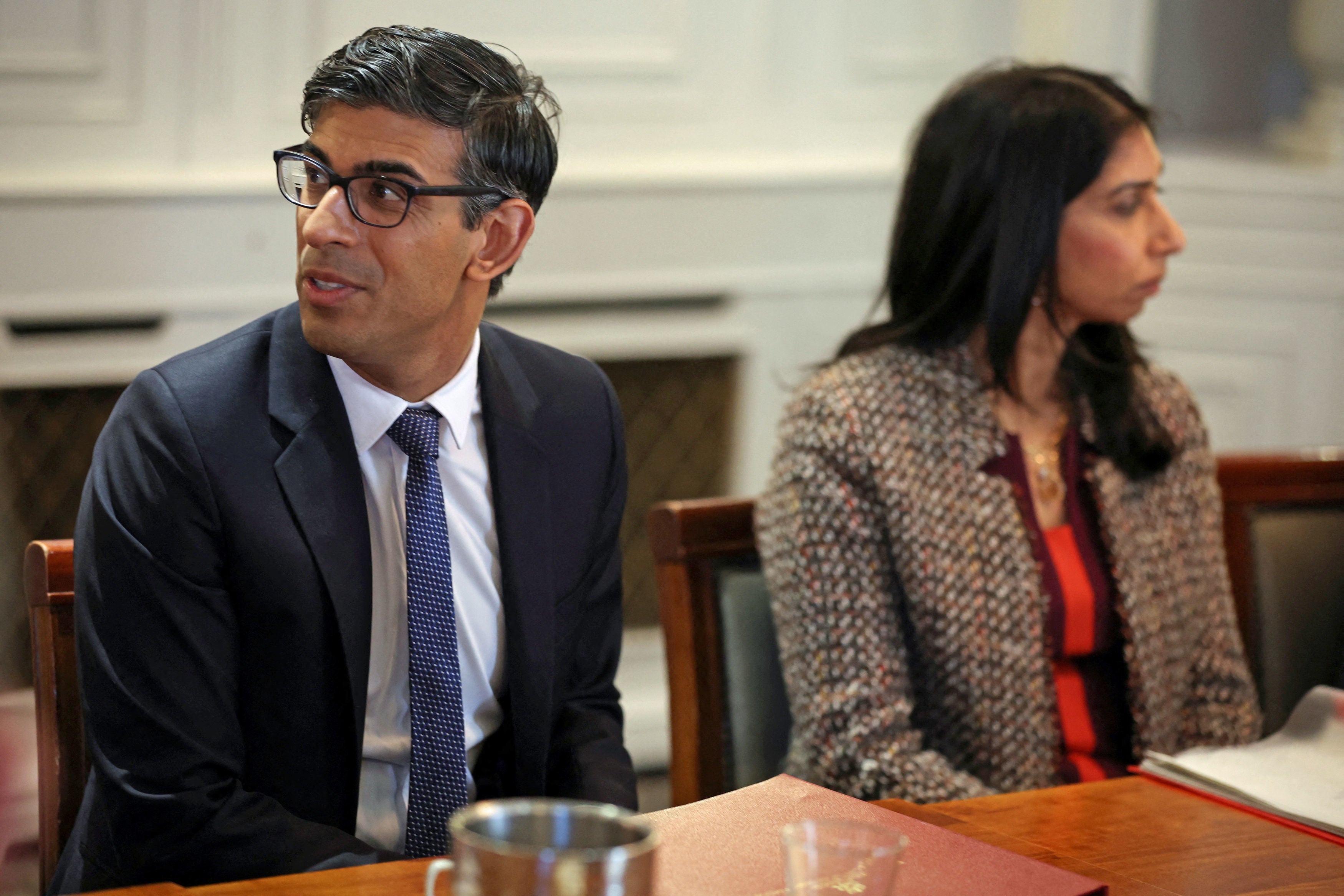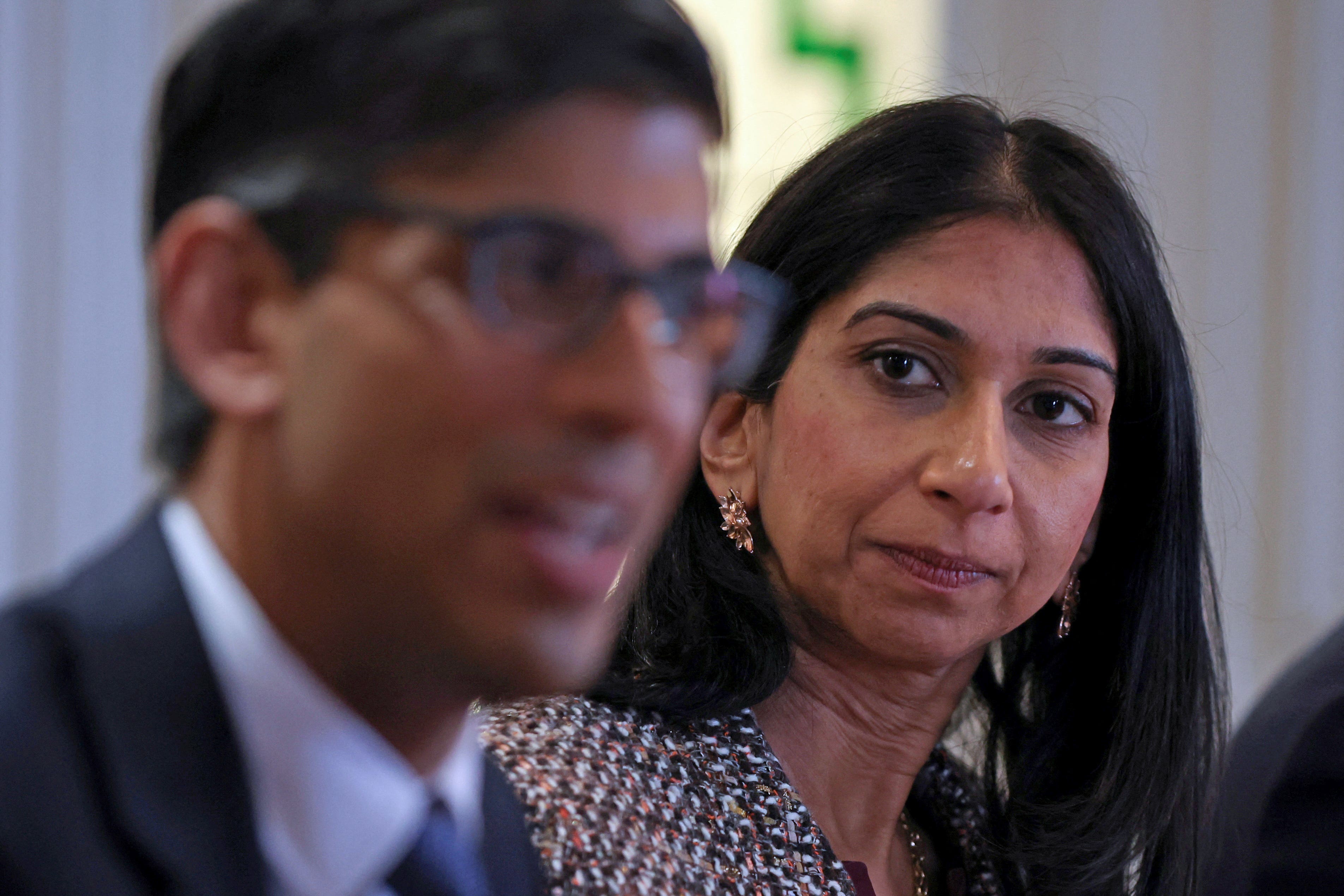Braverman announces crackdown on foreign students bringing family to UK
Economic benefits of overseas students cannot be ‘at the expense’ of pledge to cut immigration, says home secretary
Your support helps us to tell the story
From reproductive rights to climate change to Big Tech, The Independent is on the ground when the story is developing. Whether it's investigating the financials of Elon Musk's pro-Trump PAC or producing our latest documentary, 'The A Word', which shines a light on the American women fighting for reproductive rights, we know how important it is to parse out the facts from the messaging.
At such a critical moment in US history, we need reporters on the ground. Your donation allows us to keep sending journalists to speak to both sides of the story.
The Independent is trusted by Americans across the entire political spectrum. And unlike many other quality news outlets, we choose not to lock Americans out of our reporting and analysis with paywalls. We believe quality journalism should be available to everyone, paid for by those who can afford it.
Your support makes all the difference.Suella Braverman has announced a crackdown on overseas students bringing family members to the UK as part of a push to reduce net migration.
The home secretary said all foreign students – apart from those on postgraduate research programmes – will be banned from bringing their dependants from January 2024.
Ms Braverman said there had been an “unexpected” spike in the number of dependants – saying the economic benefits brought by students could “not be at the expense” of the Tory promise to cut immigration.
Rishi Sunak’s government is also stopping international students switching from the student visa route to work routes before their studies have been completed.
Maintenance requirements for students and their dependants will also be pulled, and Ms Braverman has vowed to clamp down on “unscrupulous education agents who may be supporting inappropriate applications to sell immigration not education”.
Around 136,000 visas were granted to dependants of sponsored students in the year ending December 2022, the government said – an eight-fold increase from 16,000 in 2019.
Despite the crackdown, Ms Braverman insisted that the government would work with universities to deliver an “alternative approach” to make sure “the best and the brightest students can bring dependants”.
Mr Sunak and Ms Braverman are under huge pressure from Tory MPs for plans to cut net migration, with official annual figures to be published this week expected to show it has reached at least 700,000.
The PM told the cabinet on Tuesday that the latest moves “would make a significant difference to the numbers”. Ms Braverman said it struck “the right balance between acting decisively on tackling net migration and protecting the economic benefits that students can bring”.

Britain’s universities warned the Tory government against a crackdown on foreign students – urging the government to take students out of the overall net migration figure to depoliticise the issue.
The Russell Group, representing 24 elite universities, said foreign students brought in “vital export income”. New immigration rules are likely to have a “negative impact” given the “fierce” global competition for international students, said the Russell Group’s chief executive Tim Bradshaw.
But the group said it was pleased the graduate route – where overseas students can work in the UK for up to three years after completing their studies – will remain open.
Universities UK said the Braverman announcement “leaves some questions unanswered” on exactly which students could still bring family members to Britain.
“Anything that threatens to affect the UK’s global success as a top destination for international talent needs to be considered very carefully,” said Universities UK’s Jamie Arrowsmith – pointing to a report that found overseas students boosted the economy by £42bn during 2021-22.
Jo Grady, general secretary of the University and College Union (UCU), called the tightening of immigration rules “vindictive” and “shameful”. The union leader warned that the new curbs may be “damaging” to the pipeline of “international talent” into the country.

With the huge net migration figure set to come on Thursday causing Tory anguish, Ms Braverman had reportedly pushed five proposals – including raising the salary threshold for skilled workers and reducing the time foreign students can stay in the country.
But chancellor Jeremy Hunt and education secretary Gillian Keegan were said to have pushed back against wider restrictions on foreign students.
Right-wing allies of Ms Braverman have warned of the “unbearable strain” of record net migration numbers – arguing the party will be punished at the ballot box if it fails to tackle the “biggest single issue”.
Even some Tory moderates told The Independent they welcomed a crackdown on some students bringing family members – urging Mr Sunak to consider changes to salary requirements and an overall annual cap on visa numbers.
Ms Braverman said the government expected net migration to fall to “pre-pandemic levels in the medium term”. Explaining last year’s net migration figure of 504,000, she cited “temporary factors” such as the influx Ukrainian refugees and Hong Kong citizenship scheme.
But Marley Morris, migration expert at the IPPR think tank, said targeting students and their dependants was “a mistake” because most of them don’t stay in the UK. “Most international students are temporary migrants and are not a major contributor to net migration in long run.”
Settlement schemes aside, ex-Tory leader Sir Iain Duncan Smith has insisted that the UK remains “addicted to cheap labour” and needs to invest in technology to perform low-paid tasks such as picking and cleaning fruit.
However, the latest IMF report, which upgrade Britain’s growth forecast, endorsed the Sunak government’s approach in plugging skills shortages with immigrants.
The international body said the UK should look again at “fine-tuning the immigration system to alleviate sectoral and skilled labour shortages and enhance labour market flexibility”.





Join our commenting forum
Join thought-provoking conversations, follow other Independent readers and see their replies
Comments